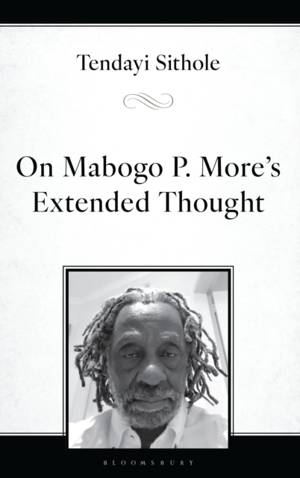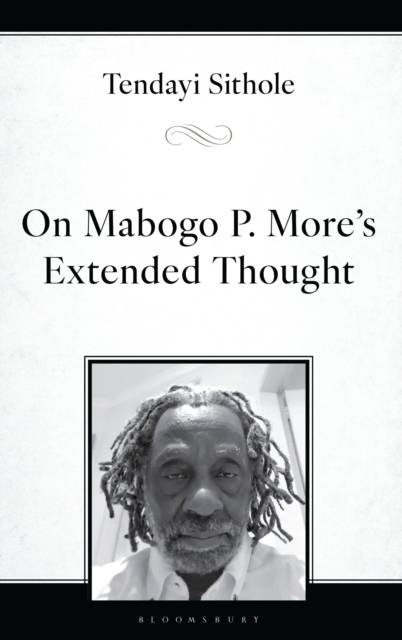
- Afhalen na 1 uur in een winkel met voorraad
- Gratis thuislevering in België vanaf € 30
- Ruim aanbod met 7 miljoen producten
- Afhalen na 1 uur in een winkel met voorraad
- Gratis thuislevering in België vanaf € 30
- Ruim aanbod met 7 miljoen producten
Zoeken
Omschrijving
Mabogo P. More's understanding of philosophical anthropology as the project that is concerned about the human question profoundly impacted how he accounted for the very idea of a black point of view. This book investigates how More's extended thought generatively engages in themes like the name, principle, antiblackness, blackness, and Azania. With a Black and decolonial intertextuality, it explores ways in which More viewed philosophy not as an abstraction, but as a concrete and material project, one he sought to turn toward calls for justice, for challenging the antiblackness that pervaded post-1994 South Africa, and for a liberated Azania. Demonstrating just how much the South African experience can contribute to the often North-American-centered field of Black studies, the book shows how a politics centered on Black social interests must navigate between the temptations of Marxism and liberalism in order to find its own way towards liberation. At the long arc of the human question, which is at the core of philosophical anthropology, More's extended thought makes a case for being-black-in-the-world as opposed to being-black-in-an-antiblack-world.
Specificaties
Betrokkenen
- Auteur(s):
- Uitgeverij:
Inhoud
- Aantal bladzijden:
- 160
- Taal:
- Engels
- Reeks:
Eigenschappen
- Productcode (EAN):
- 9781666959567
- Verschijningsdatum:
- 22/01/2026
- Uitvoering:
- Hardcover
- Formaat:
- Genaaid
- Afmetingen:
- 152 mm x 229 mm
- Gewicht:
- 453 g

Alleen bij Standaard Boekhandel
+ 354 punten op je klantenkaart van Standaard Boekhandel
Beoordelingen
We publiceren alleen reviews die voldoen aan de voorwaarden voor reviews. Bekijk onze voorwaarden voor reviews.







